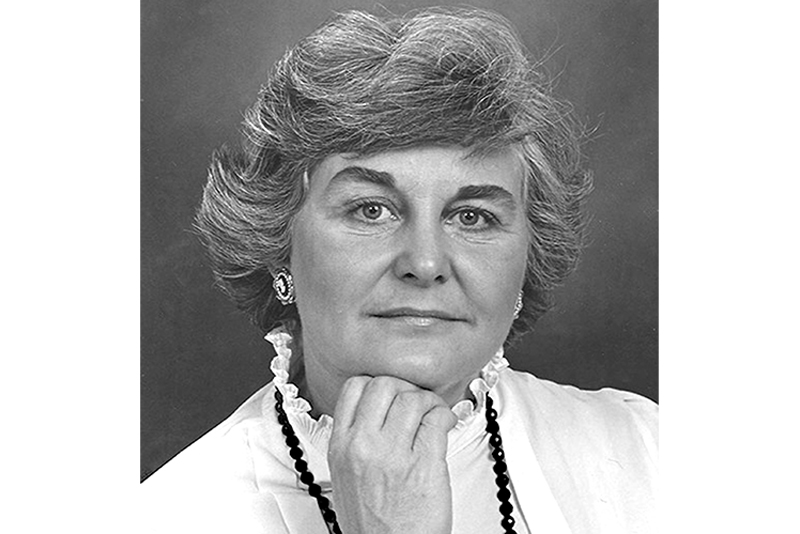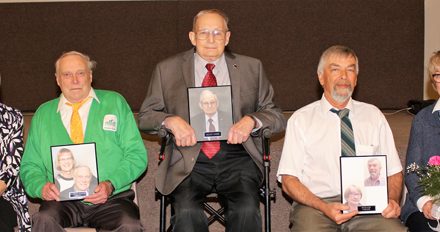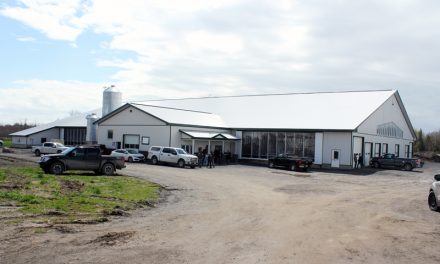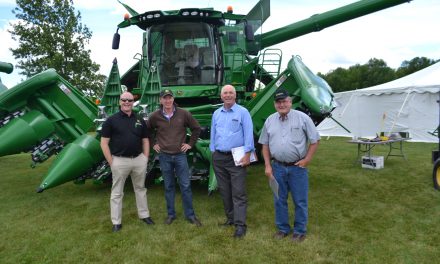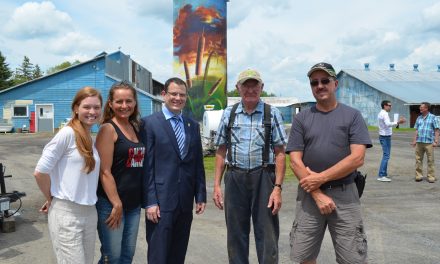Diane Harkin
Courtesy Photo
By Sandy Casselman
AgriNews Staff Writer
Whether they realize it or not, today’s women in agriculture are standing on the shoulders of the women who came before them, women like Diane Harkin who fought for change that would make life a little better and a little more equal for women on the farm. Now in her 80s and still living on the family farm in Winchester, Harkin continues to be active in the farming community and in the movement to improve the lives of women in agriculture. She is a member of the Eastern Ontario Women in Agriculture (EOWIA) group.
“It was a historical time, and we made history,” Harkin said of her past.
She was instrumental in advancing the rights of farm women, and rural women in general, in the latter part of the last century. In addition to effecting political change, Harkin was involved in creating educational opportunities for farm women. Like today’s generation, Harkin once stood on the shoulders of the women who came before, women like her grandmother, a suffragette who fought for women’s rights to vote. Each generation of women since has had to fight for their own changes, building on the accomplishments of those who came before.
“In 1975 the United Nations (UN) declared that this would be the decade for women. Women all around the world took a stand and demanded that under the law they be treated with the same legal rights afforded to men. In other words, equality. That was our stimulus,” Harkin said. “We just wanted things to be better for farm women. We weren’t thinking about making history or anything like that, but obviously we did because the laws were changed, and policies were changed.”
In 1975, Harkin created the Women for the Survival of Agriculture (WSA) organization. Among other things, the group provided farming women with opportunities to share their stories. During that time, Harkin was a force to be reckoned with, one who was making the public-speaking rounds at various events, where she spoke to crowds of both men and women about the changes she and the WSA were hoping to make.
Harkin and the WSA were instrumental in bringing about the first national farm women’s conference in 1980. With the help of a bureaucrat well-versed in politics, Harkin said the plan quickly came together. Representatives from each province were invited to a planning meeting to identify issues specific to farming women. With a list of issues on hand, Harkin said her group hired university students to do research into those issues and the result was six research papers that were presented at the conference.
“Those papers are what changed the tide,” Harkin said.
Harkin and her peers made life better for future generations by effecting change. They created a blueprint for future generations on how to lobby for change, and Harkin turned that blueprint into a book, They Said We Couldn’t Do It – The Story of a Quiet Revolution, which was published in early 2019.
“I knew that if I didn’t write it down, it would be forgotten. And it was a page in history that needed to be recorded,” she said.
Diane Harkin, who has accomplished a lot, and who has received many accolades in response to her efforts, is a remarkable role model for today’s women in agriculture, and for generations of women to come. She epitomizes what it means to be a force for change, to be courageous and determined in the face of societal opposition. She’s made it easier for today’s farming women to speak out, to assemble, and to push for change.
“I didn’t do this alone. It took women from across Canada and a lot of women, amazing women. We all worked hard to make sure that things happened, and we were successful. I’d like to give credit to all those women who were so involved,” Harkin said.
To connect with Diane Harkin or to join the Eastern Ontario Women in Agriculture group, send an email (eowomeninagnet@gmail.com).

